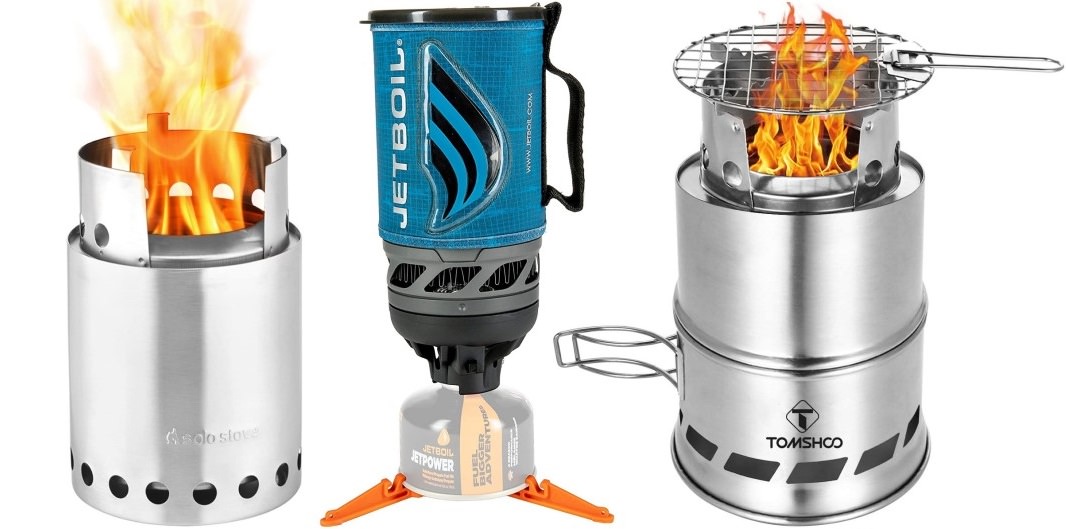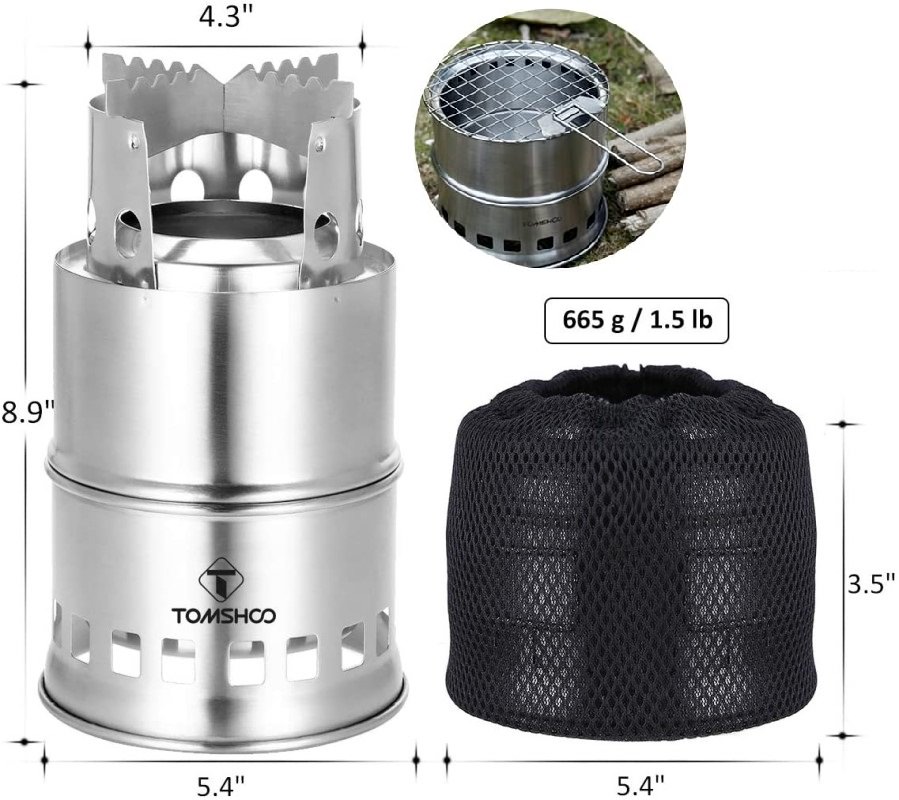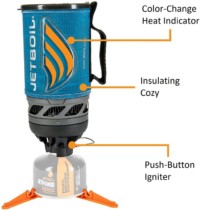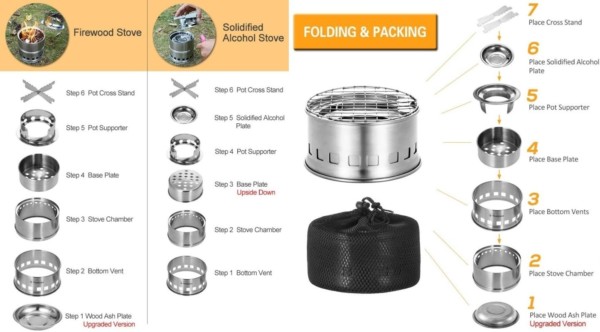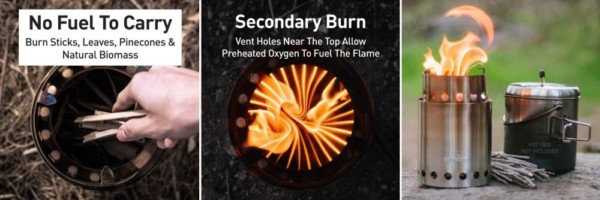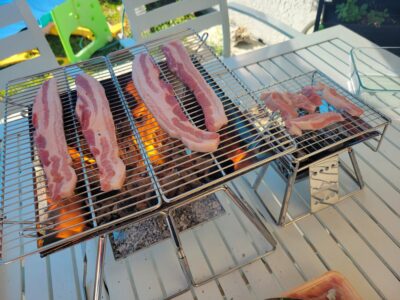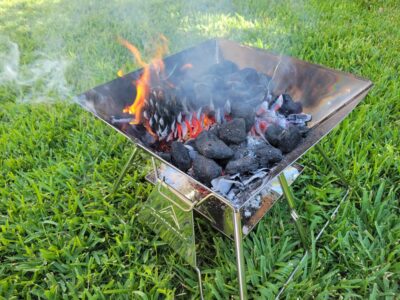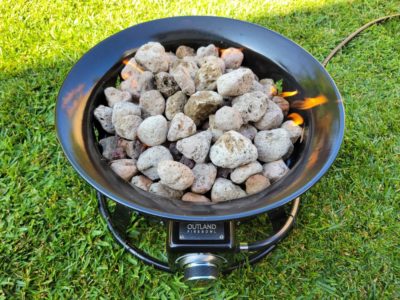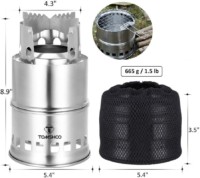Tomshoo Camping Wood Stove
Contents
Camping Stoves
I am an avid survivalist, hiker, camper, and wilderness backpacker and was looking for a cost-effective, environmentally-friendly solution to use for when my Jetboil or any other fuel-based product would fail in the backcountry. That product was the Solo Stove. It was my go-to, wood-burning stove for over 6 years until I came across the Tomshoo Stove available for a MUCH LOWER price last year. I was intrigued to see how this copycat would perform.
In the same concept that Solo Stove pioneered, this product only requires small pieces of wood you can readily find around camp to be used as fuel. Be mindful, however, about local regulations on where you can have an open flame and what material can be used. For instance, in California’s national parks, you generally are prohibited from forming any type of open fire above 8,000′ in elevation. You also are not allowed to collect any firewood above that height. Some rangers, however, said that during certain seasons, a stove is allowed as long as the wood is collected and brought up from the lower elevations. In addition, they essentially agreed that wood stoves are more environmentally friendly than fuel canisters used by the likes of Jetboil.
Check your local and State regulations for types of stoves that can be used.
Tomshoo Stove
Like the Solo Stove, the Tomshoo burns wood pieces very well, fast, and nearly smoke-free. The fire lasts surprisingly long and not much ash is left behind, but like other wood stoves, the flames may blacken the exterior of pots. Wood can be added through the hole in the Pot Support without having to remove the pot or pan to allow for uninterrupted cooking. However, I wish there was a way to easily control the intensity (temperature) of the fire for cooking non-liquid items so frying or baking would not leave food burnt. All you could really do is feed the flames with small pieces of wood to maintain an approximate, desired level of heat intensity.
Tomshoo copied the Solo Stove‘s core features quite well, but there are several differences:
- Quality of the material is not as good/heavy-duty as that of the Solo Stove
- Tomshoo’s stove packs much smaller due to a more modular design
- Modular design allows the stove to be used in a wider variety of ways
- Wood burner (like the Solo Stove)
- BBQ grill (with built-in drip catcher)
- Stove with alcohol as the fuel source
- A small grill is included and fits inside the stove
Limitations
Both the Solo Stove and Tomshoo wood stoves have some limitations over Jetboil.
- Local restrictions may prevent their use due to the possibility of errant amber causing a wildfire
- Fire may be difficult to get started when the environment (and wood) is wet
- Can take longer to heat (Jetboil can boil water in just 100 seconds!)
- Initially generates smoke (which could beneficially help keep mosquitoes away), though once the fire gets hot enough, “preheated oxygen” will nicely “burn” away the smoke too
- Jetboil produces no smoke
- Cannot be immediately packed away until it has cooled to touch
- Fire may blacken the exterior of pots
Tips
The following steps on how to fire up the wood stove was provided by Solo Stove (with clarifications by me) and also applies to Tomshoo’s stove:
- Gather dry twigs and tinder between 2-3″ in size
- Pine cones also make great fire starters
- Hard wood burns better and longer
- Find level ground to ensure the stove would not tip over
- Clear away ground debris for at least 5′ in diameter
- Only bare ground with no leaves, tinder, and other flammable material should be present
- Light a fire inside the stove
- Start with small, thin twigs and tinder first, then slowly add larger pieces as the fire gains strength
Other Cooking Devices
We also recommend the following cooking devices:
Charcoal Grills
- ICECO 15.7″ Foldable Charcoal Grill
- Campingmoon Charcoal Grill MT-2 or X-Mini
- Snow Peak Takibi Combo
Propane Stoves
- Outland Living Firebowl Propane Fire Pit (893 Deluxe) with Refillable Tank
- In addition to providing a nice, safe fire pit, they can also be used for boiling or heating liquids (via a grill rack or tripod). We do not recommend using them for grilling as oils and dirt can clog up the pipes
- Mr. Heater Buddy Indoor-Safe Portable Propane Radiant Heater
- Yes, you can cook over it with a tripod-suspended platform!
Final Thoughts
From a value perspective, the Tomshoo copies and outdoes the Solo Stove in many, many ways and at a much lower price point. It should be part of anyone’s bug-out emergency bag. I highly recommend it for its value, modular design, and similar burning output as the pricier Solo Stove. Wood stoves do not depend on fuel canisters (like the Jetboil) since fuel sources are readily available from practically anywhere, and as a result is also less expensive to own over the long run.
Its light weight and ability to have practically unlimited fuel makes the stove a must-have for a survival bug out bag, and as a bonus, it also acts as a small firepit with which to warm yourself up with.
Where To Buy
- Modular wood stoves
- Solo Stove (Amazon): Lite / Titan / Campfire / Bonfire Pit
- Jetboil (Amazon): Flash / Stash / MiniMo
- Foldable Fire Pit & Grill: Snow Peak Takibi Combo (Made in Japan) / Campingmoon
- ICECO 15.7″ Foldable Charcoal Grill
Related Posts
- Cooking
- ICECO 15.7″ Foldable Charcoal Grill – Compact for Tabletop
- Osba 1L Travel Rice Cooker 12V (2-4 Cups) For Cars (CFXBOB-MR C2)
- Lighting
- Devos LightRanger 2000 vs 1200: Bright, portable, compact, full-coverage area light with battery and stand. Now brighter with remote control, built-in colored LEDs
- Devos LightRanger 1200: Portable, compact, full-coverage area light with battery and stand
- Goal Zero Skylight: Heavy-duty, bright, portable, full-coverage area light with battery and stand
- Temperature Control
- Mr. Heater Buddy Indoor-Safe Portable Propane Radiant Heater
- Outland Living Firebowl Propane Fire Pit (893 Deluxe) with Refillable Tank
- EcoFlow Wave Portable Air Conditioner
- Chill Pal Mesh vs PVA Cooling Towels for Hiking, Camping, Travel
- Backcountry Meals: RightOnTrek / Mountain House
- Power Stations / Solar Panels / Car Freezers
- Euhomy Countertop Ice Maker (26 lbs/day)

